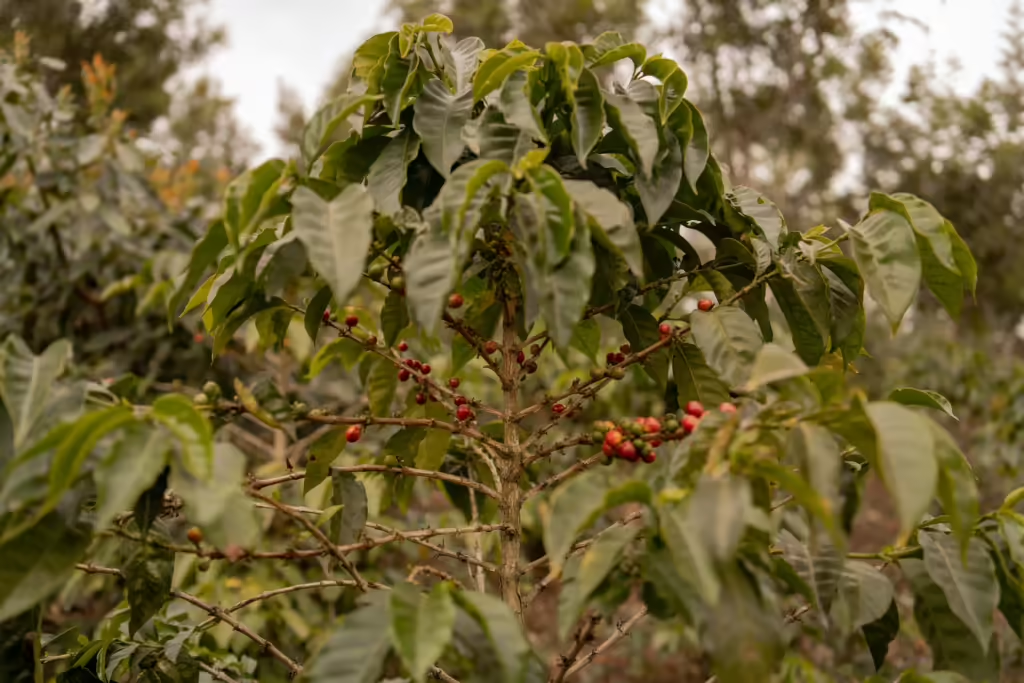
The global demand for coffee continues to grow, but so does the pressure on the environment. Coffee farming, when done without sustainable practices, can lead to deforestation, soil degradation, water pollution, and loss of biodiversity. However, the future of coffee doesn’t have to be bleak. By making small, sustainable changes, coffee farmers around the world are not only protecting the environment but also improving the quality of their crops and livelihoods. In this article, we’ll explore some of the small yet impactful changes in sustainable coffee farming and why they matter for the future of coffee.
Why Sustainable Coffee Farming Matters
Coffee is one of the most traded commodities in the world, and millions of people depend on coffee farming for their income. However, traditional coffee farming practices can be harmful to the environment. From excessive water use and deforestation to the overuse of chemical pesticides and fertilizers, unsustainable farming can deplete natural resources and harm ecosystems.
Sustainable coffee farming aims to minimize these environmental impacts while also providing fair wages, safe working conditions, and community benefits for coffee farmers. By adopting eco-friendly practices, farmers can help preserve the environment, improve crop yields, and contribute to a healthier planet—all while ensuring the long-term viability of coffee production.
Small Changes Making a Big Impact in Coffee Farming
1. Shade-Grown Coffee
One of the most important practices in sustainable coffee farming is growing coffee under the shade of trees. In many parts of the world, coffee plants are grown in direct sunlight, which can lead to deforestation and loss of biodiversity as trees are cleared to make space for coffee crops.
By planting coffee under a canopy of native trees, known as shade-grown coffee, farmers can help preserve local ecosystems, protect wildlife habitats, and improve soil health. Shade trees also help regulate the temperature and moisture levels in coffee plantations, reducing the need for irrigation and chemical inputs.
Impact:
- Protects biodiversity by providing habitats for birds, insects, and other wildlife.
- Reduces soil erosion and improves soil fertility by maintaining a natural ecosystem.
- Helps mitigate climate change by capturing carbon in trees and preventing deforestation.
2. Organic Farming
Organic coffee farming eliminates the use of synthetic pesticides, herbicides, and fertilizers, which can pollute water sources and degrade the soil. Instead, organic farmers rely on natural methods to maintain soil health and control pests, such as using compost, crop rotation, and natural predators to keep coffee plants healthy.
By avoiding harmful chemicals, organic coffee farming supports healthier ecosystems, promotes biodiversity, and produces higher-quality coffee beans. Although organic farming may require more effort and time, it ultimately benefits both the environment and the farmers who work the land.
Impact:
- Improves soil health by using natural fertilizers and compost instead of chemicals.
- Reduces water pollution by preventing runoff of chemical pesticides and fertilizers.
- Supports biodiversity by creating a more balanced and natural ecosystem.
3. Water Conservation Techniques
Water is essential for coffee farming, but many traditional coffee farms use excessive amounts of water, leading to waste and pollution. Sustainable coffee farms are adopting water conservation techniques to reduce water usage and protect local water sources.
Techniques such as drip irrigation, which delivers water directly to the roots of plants, and recycling water used in the coffee processing stage are helping reduce water waste. Some farms are also using rainwater harvesting to capture and store water during rainy seasons, reducing their reliance on external water sources.
Impact:
- Reduces water waste by using water more efficiently.
- Protects local water supplies by reducing the risk of contamination from runoff.
- Ensures long-term sustainability by preserving water resources for future generations.
4. Agroforestry
Agroforestry is a farming practice that integrates trees and other plants into coffee plantations to create a diverse and resilient ecosystem. By planting a variety of crops, such as fruit trees, alongside coffee plants, farmers can improve soil health, enhance biodiversity, and create more stable ecosystems.
This method not only benefits the environment but also provides farmers with additional sources of income. For example, fruit trees can produce crops that farmers can sell in local markets, reducing their dependency on coffee as their sole source of income.
Impact:
- Increases biodiversity by introducing a variety of plants and trees into the ecosystem.
- Improves soil quality and prevents erosion by maintaining a diverse plant cover.
- Provides alternative income streams for farmers through the sale of other crops.
5. Composting and Soil Management
Healthy soil is essential for producing high-quality coffee beans. Sustainable coffee farmers are turning to composting and other soil management techniques to improve soil health and fertility naturally. By composting organic waste, such as coffee pulp, leaves, and other plant materials, farmers can create nutrient-rich compost that promotes healthy plant growth.
Using compost also reduces the need for chemical fertilizers, which can harm the environment and lead to soil degradation. In addition, many farmers practice crop rotation and cover cropping to keep the soil healthy and protect it from erosion.
Impact:
- Improves soil fertility by adding organic matter and nutrients to the soil.
- Reduces the need for chemical fertilizers, promoting a healthier ecosystem.
- Prevents soil erosion and helps retain moisture, supporting long-term productivity.
6. Renewable Energy on Coffee Farms
Sustainable coffee farms are increasingly adopting renewable energy sources, such as solar panels and hydropower, to reduce their carbon footprint and reliance on fossil fuels. Using renewable energy not only reduces greenhouse gas emissions but also helps farmers cut energy costs and operate more sustainably.
Many coffee farms are now using solar energy to power equipment, such as coffee dryers and processing machinery, and to generate electricity for their homes and communities.
Impact:
- Reduces carbon emissions by replacing fossil fuels with renewable energy sources.
- Lowers energy costs for farmers, making coffee production more sustainable.
- Promotes environmental sustainability by reducing the coffee industry’s carbon footprint.
The Role of Consumers in Supporting Sustainable Coffee
As consumers, we play a vital role in encouraging sustainable coffee farming practices. By choosing to purchase sustainably sourced coffee, we can support farmers who are making efforts to protect the environment and improve their communities.
Here’s how you can support sustainable coffee farming:
1. Look for Certifications
Certifications such as Fair Trade, Rainforest Alliance, and Organic help ensure that the coffee you buy was produced using sustainable and ethical practices. These certifications focus on fair wages, environmental protection, and social benefits for farmers and their communities.
2. Support Local and Small Coffee Producers
Many small, local coffee roasters work directly with farmers who practice sustainable coffee farming. By purchasing coffee from these producers, you can support small-scale farmers and encourage more sustainable practices.
3. Choose Single-Origin Coffee
Single-origin coffee often comes from specific farms or regions that prioritize sustainable practices. These coffees are typically grown with care, allowing you to trace the beans back to the source and know that you’re supporting environmentally friendly farming.
Conclusion
Sustainable coffee farming is about making small changes that have a big impact on the environment, farmers, and the quality of the coffee we enjoy. By embracing practices like shade-grown coffee, organic farming, water conservation, and renewable energy, farmers are creating a more resilient and sustainable future for the coffee industry. As consumers, we can help drive this positive change by making informed choices and supporting sustainably sourced coffee. The next time you brew a cup of coffee, know that every small step toward sustainability makes a big difference.




